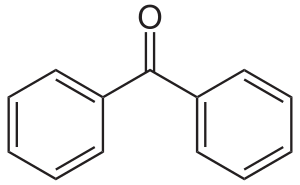Cross-conjugation facts for kids
In chemistry, cross-conjugation is a special way that chemical bonds connect in a molecule. Imagine you have three double bonds (called "pi bonds") in a molecule. In cross-conjugation, two of these pi bonds are connected to a third pi bond, but they don't connect to each other directly. It's like having a main road, and two smaller roads branch off from it, but those two smaller roads don't connect to each other.
Contents
What is Conjugation?
To understand cross-conjugation, let's first look at regular conjugation. In chemistry, conjugation happens when a molecule has a chain of alternating single and double bonds. For example, a single bond, then a double bond, then a single bond, and so on.
- When bonds are conjugated, the electrons in the double bonds (called "pi electrons") can spread out over a larger area.
- This spreading out makes the molecule more stable. Think of it like sharing a big pizza among many friends instead of just one or two. Everyone gets some, and it's more balanced.
How is Cross-Conjugation Different?
In a typical conjugated system, the double bonds are arranged in a straight line or a continuous chain. They all connect one after another.
- In cross-conjugation, the arrangement is different. You have a central double bond, and then two other double bonds branch off from it.
- These two branching double bonds are conjugated with the central one, but they are not conjugated with each other.
- This means the electrons can spread out, but not in one long, continuous path. They have a "cross" connection.
Where Can We Find Cross-Conjugation?
Cross-conjugation is found in many different types of molecules. It's important because it affects how these molecules react and what properties they have.
- One common example is a molecule called benzophenone, which is shown in the image. It has a central carbon atom connected to two benzene rings. The double bonds in this molecule show cross-conjugation.
- Another example is a molecule called dendralene. These molecules are often studied in advanced chemistry because their unique structure gives them special abilities.
- Cross-conjugation can also be found in some natural products and dyes, affecting their color and stability.
See also
- Conjugación cruzada para niños (in Spanish)
 | Selma Burke |
 | Pauline Powell Burns |
 | Frederick J. Brown |
 | Robert Blackburn |


